Poverty of imagination
Problems in Karachi, Tharparkar are solvable; it is our willingness to do the right thing that I am less sure about

The writer is a Howard Hughes Medical Institute professor of Biomedical Engineering, International Health and Medicine at Boston University. He tweets @mhzaman
Despite the fact that the current government in particular, and the party which holds the reins in general, deserves the lion’s share of the blame, the issue of poverty that often correlates with the tragedies of Karachi and Tharparkar is a complex one. In the pre-election frenzies, politicians can scream as loud, and as often, as they want about ‘ghurbat ka khatima’ (end of poverty), the reality is that governments in provinces from the northwest to the southeast have done little. Besides coming up with absurd, ludicrous and pseudo-scientific ideas to combat climate change and the energy crisis, there is a complete lack of interest, initiative or innovative ability to address poverty. Clearly, water cars and cloud seeding will not solve the problems, but neither would simply providing electricity. There are plenty of urban slums, all across the world, connected to electrical grids that are locked in a vicious cycle of poverty. Clean water alone does not bring people out of poverty either. Indeed these things help alleviate some of the suffering, but electricity and water are not solutions to rampant, painful and debilitating poverty. Unfortunately, this is all our political leaders can come up with, when pushed to make a case for a comprehensive plan for poverty alleviation.
Successful models of poverty alleviation are driven by a combination of robust academic research, creative economic policy, inclusive innovation and transparent implementation. These models also need to be nimble, context-specific, inclusive and cognisant of sociocultural realities. While there is robust research on economic angles through institutions such as the Pakistan Institute of Development Economics and the Sustainable Development Policy Institute, the scientific, medical and technological innovation in creating Pakistan-specific solutions has lagged severely. Our only forays into science these days are in water cars and cloud seeding, leaving us with little hope for the future. Just as we need to hold our governments to high standards of accountability, we also need to expect better from our innovators and researchers. Poverty is our collective problem, and our solutions need to embrace the diversity of opinion. Poverty alleviation need not be the monopoly of NGOs and developmental economists. It would be of high social and national value if our research institutions in social and natural sciences, engineering and medicine, develop platforms and structures focused on new solutions that address our unique challenges. More than financial resources, this requires the willingness on our part to embrace the problem and do something about it. Apart from fostering dialogue and bringing together a disparate set of expertise focused on solutions, it will also create awareness and recognition of the challenges, something that has been elusive for most of us who live on the better side of the class divide.
I believe that the problems in Karachi or Tharparkar are fundamentally solvable; it is our willingness to do the right thing that I am less sure about.
Published in The Express Tribune, June 30th, 2015.
Like Opinion & Editorial on Facebook, follow @ETOpEd on Twitter to receive all updates on all our daily pieces.

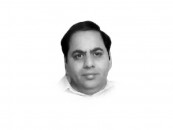






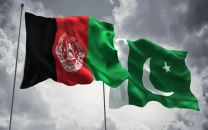

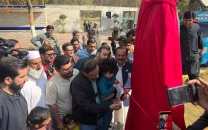
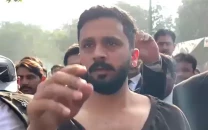
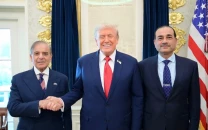


COMMENTS
Comments are moderated and generally will be posted if they are on-topic and not abusive.
For more information, please see our Comments FAQ